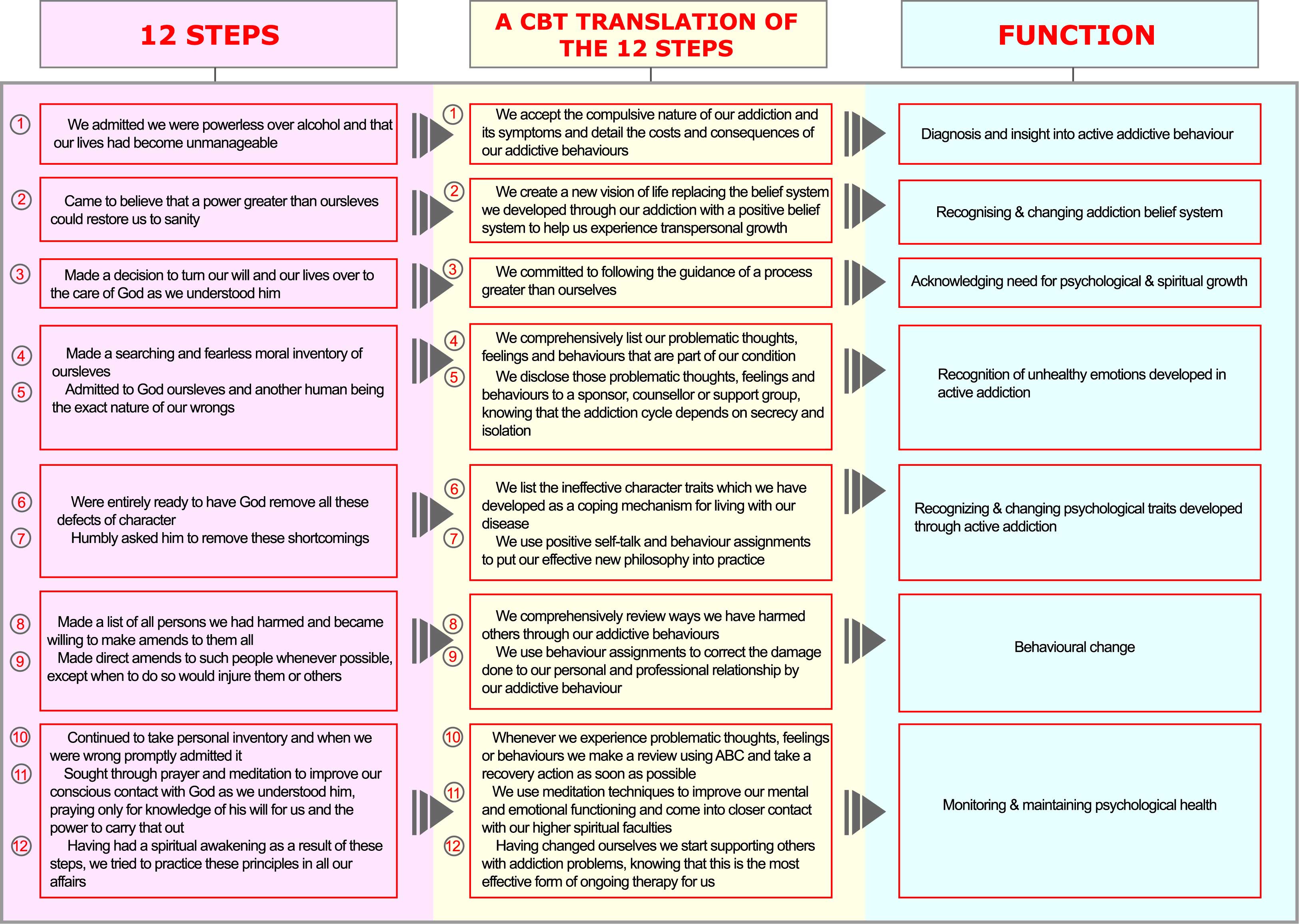Unless you have had a problem with addiction or have an interest in psychology, this post may have a limited appeal. I will show how a 12-step program can be explained without an appeal to the divine, while the next post will explore the group dynamic in detail.
Introduction
I have been wanting to do this for a while as my family has had its challenges with addiction. And what better place to debunk than here at freethought blogs. If you have had the opportunity (i) to experience a 12-step program, it becomes obvious that this is a cult [ii].
This is not unique to AA since whenever a group forms with a shared vision, there are social norms to be followed but not questioned. I pity an atheist as a group member though since one obvious agenda of the creators is to get you closer to God.
I want to criticize the dogmatic nature of the group and explore how it may actually work. From a naturalistic standpoint, there is no mysterious force that helps people stay clean and sober, and we know that a “spiritual awakening” is not a miracle but a change in attitude.
How Effective Is It?
We should not throw the baby out with the bathwater because the 12-Step approach to recovering from substance or alcohol abuse can be effective. An analysis of over 27 randomized controlled studies concludes that 42% of 10,565 participants of a 12-step approach will remain abstinent for a period of 1-year or more whereas only 35% would remain abstinent through other approaches [1].
Being addicted to substances is usually far worse than the effects of endorsing any of the problematic aspects of the AA ideology. Until something much better comes along, AA may represent the only hope for some. [4]
The principles of cognitive-behavioral theory explain most of how the program works although no one knows exactly how any particular individual stays clean and sober. Members that are ideological about AA will no doubt have a problem with explaining how it works because they read their literature as a fundamentalist Christian would read scripture: inerrant, always relevant, cryptic, and divinely inspired [2].
How It Really Works
This program has been looked at by many practitioners, and so I have provided one possible interpretation of how it may work. There are other interesting areas to explore for instance the idea that having a “higher power” may provide benefits. Of course, believing that there is something greater than you for comfort (akin to an attachment figure like a “Father”) can provide benefits without being true.
Click on the figure to see in detail.
Notes
i) I use the word opportunity not out of sarcasm but irony—that is, for most members, the program offers them a complete change in perspective on life by developing moral consciousness. This new consciousness demand that members drop judgments of others and look at the similarities in one another, not the differences. In a nutshell, that is the spiritual awakening that they speak of.
ii) For some, it may not seem fair to label AA as a cult but that is the impression that is given off to outsiders. A cult is never our group (orthodoxy) and always another group. In other words, the word cult is a way to disparage another group. But I use the word cult here in the sense that leaders and beliefs are often followed, not questioned, and admired to an unwarranted degree.
References
[1] https://www.cochranelibrary.com/cdsr/doi/10.1002/14651858.CD012880.pub2/full
[2] Kugel, James L. How to Read the Bible: A Guide to Scripture, Then and Now.
[3] https://www.thecabinchiangmai.com/blog/the-psychology-behind-the-controversial-12-steps-in-addiction-treatment/
[4] https://www.psychologytoday.com/us/blog/matter-personality/201408/the-12-steps-aa-translation

